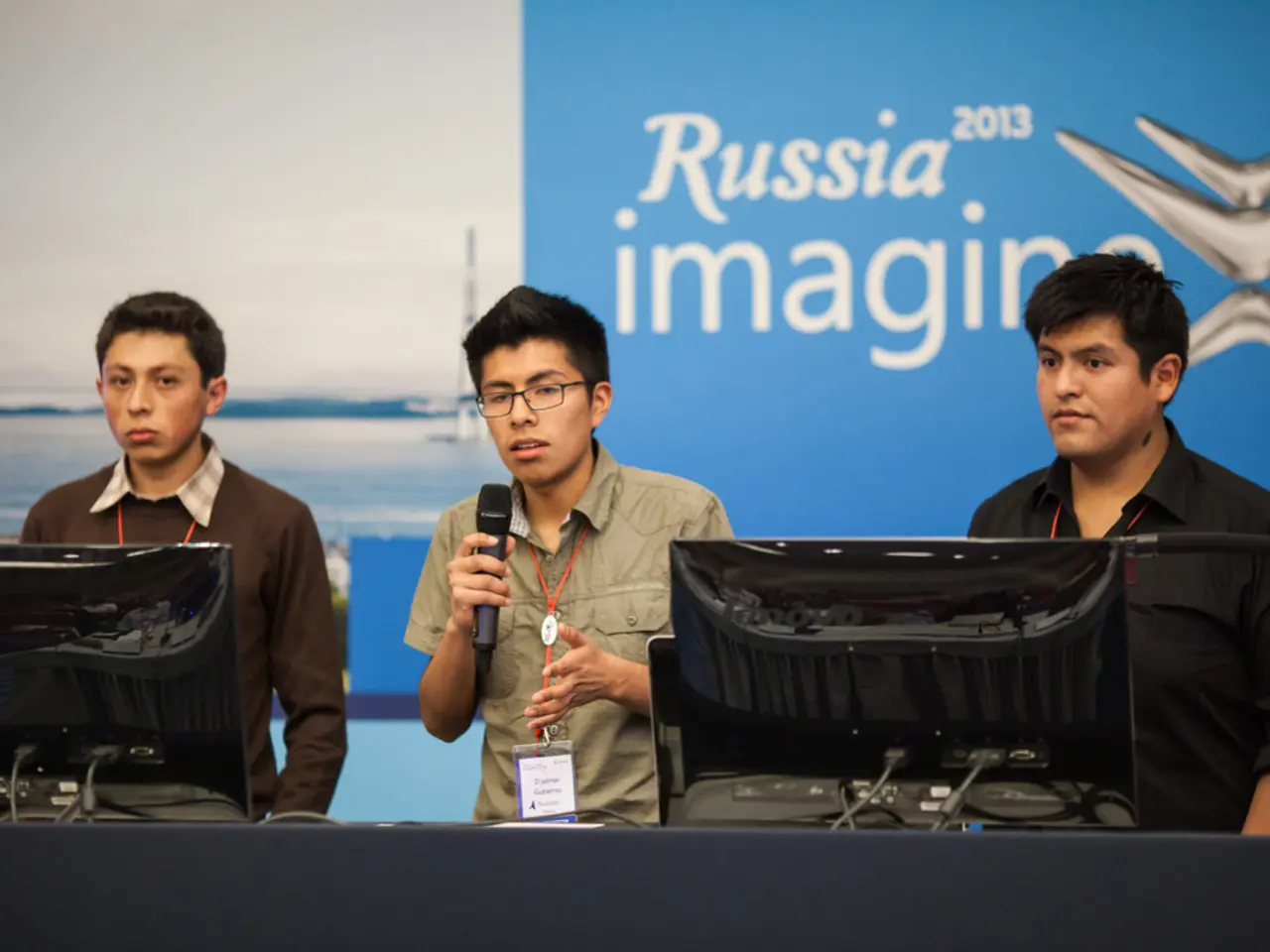Bridging Africa's Shortage of Tech Specialists through Artificial Intelligence Education
Africa is witnessing a surge in the adoption of Artificial Intelligence (AI) and related technologies, promising significant economic growth. However, a critical challenge lies in addressing the tech talent shortage in the AI and data science sectors. This article explores key strategies aimed at closing the gap and capitalising on Africa's burgeoning AI market.
Nigeria's CDIAL recently launched the Indigenius Mobile app and a multilingual smart keyboard, reaching over 100,000 users and boosting rural e-commerce transactions by 30%. AI training programs are adapting quickly to industry changes, unlike traditional education systems that often struggle to keep pace with technological advancements.
Governments play a crucial role in developing national digital skills strategies aligned with industry needs, reforming outdated academic curricula, and leveraging public funds to attract private investment and philanthropy for widespread training initiatives. Public-private partnerships, such as Ghana’s MTN partnership, are essential in advancing AI and coding skills through national initiatives like One Million Coders.
Extending training to underserved rural areas is crucial. Mobile-first learning platforms, microcredentials, community tech hubs, and vocational centers can link education directly to job opportunities. Blending technical and soft skills training is also vital, preparing talent for dynamic job markets.
Proven national initiatives, like Rwanda’s Smart Rwanda program and Nigeria’s 3 Million Technical Talent program, demonstrate successful nationwide upskilling that can be expanded. East African countries, such as Kenya, Uganda, and Rwanda, are developing strong digital talent pools, which can feed global AI and data science demand.
Remote and flexible work models, exemplified by African startups like PawaPay and Pezesha, attract tech talent able to operate independently with strong digital skills. Innovative solutions are being developed to tackle infrastructure challenges, like Africa's first AI factory by Cassava Technologies and Nvidia.
Collaborations between industry and academia, such as Google's partnership with African universities to provide hands-on training in AI and machine learning, are becoming more focused. Strategic partnerships, like Microsoft's initiative to equip one million South Africans with digital skills by 2026, are reshaping the AI training landscape.
Government-led efforts, like the African Union's Continental AI Strategy, are addressing issues like ethics, infrastructure, and capacity building. AI adoption in banking has led to impressive gains, with branches using AI recording 15% higher monthly revenue.
In Sub-Saharan Africa, 56% of companies report increased productivity due to AI, and about a third have seen growth in revenue and profitability. AI-trained professionals are reshaping industries by addressing local challenges with innovative solutions, bridging talent gaps, and driving business growth across Africa.
However, challenges remain significant, especially infrastructure gaps. With Africa’s young population and growing digital economy (estimated $180 billion in 2025), investing in scalable, inclusive, and multi-dimensional training ecosystems is critical to closing the AI talent gap and fully capitalizing on the continent's AI market projected to grow to $16.5 billion by 2030.
Innovative solutions like Ubenwa Health's AI-powered app, which detects infant asphyxia with 88% accuracy, and Aerobotics' crop yield estimation with 95% accuracy, are making a difference. AI systems are also being used by cattle farmers in Namibia to optimize feeding schedules, detect anomalies in grazing patterns, and identify early signs of disease.
remote mentorship programs, such as the Deep Learning Indaba mentorship program, are having a meaningful impact. AI training programs are tackling the critical workforce gap in AI skills, preparing individuals for in-demand roles. Nearly 90% of organizations report that shortages in AI skills are causing delays in projects, derailing innovation efforts, and even leading to lost clients.
Automating over 10 processes in banking branches has boosted customer satisfaction by 20%, reduced operational processing times by 30%, and increased monthly new account openings by 2.5% on average. The challenges are significant, but with the right strategies and investments, Africa can overcome the AI talent gap and reap the full benefits of its AI market.
- To further capitalize on Africa's burgeoning AI market, it's essential to focus on investing in scalable, inclusive, and multi-dimensional training ecosystems that cater to personal-finance and education-and-self-development needs, ensuring digital inclusion for all.
- In the startup ecosystem, innovative solutions like PawaPay and Pezesha, which promote remote and flexible work models, are playing a crucial role in attracting tech talent with strong digital skills, hence bolstering Africa's digital finances.
- As AI training programs address the critical workforce gap in AI skills, they also contribute to the growth of the startup ecosystem, bridging the tech talent shortage in the AI and data science sectors while nurturing a thriving culture of investment and innovation.




